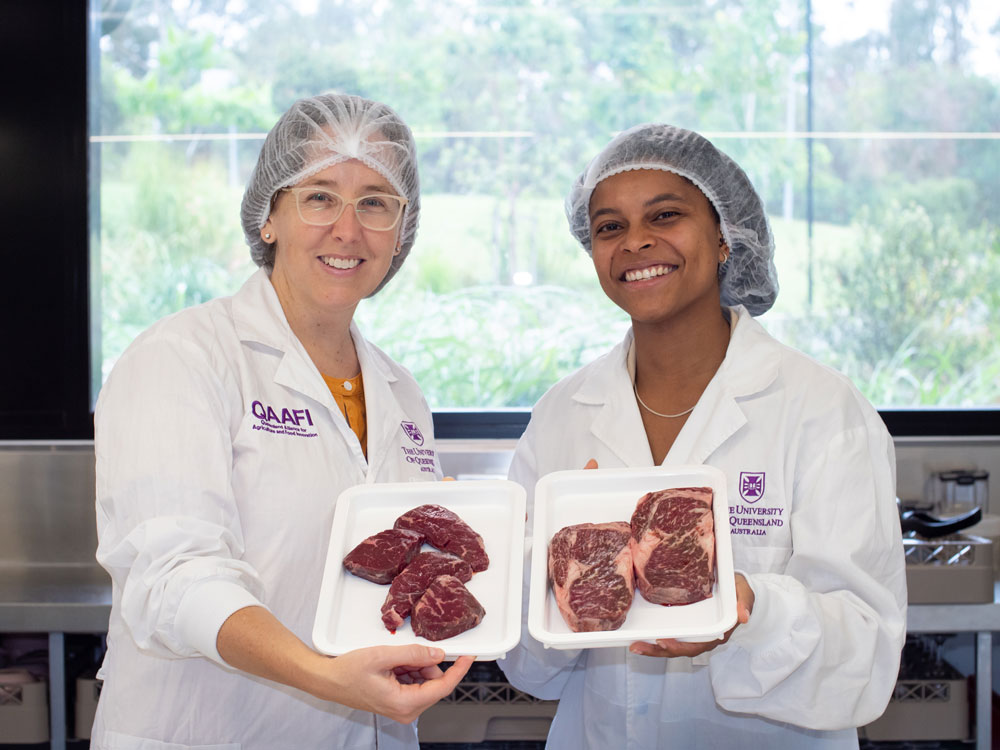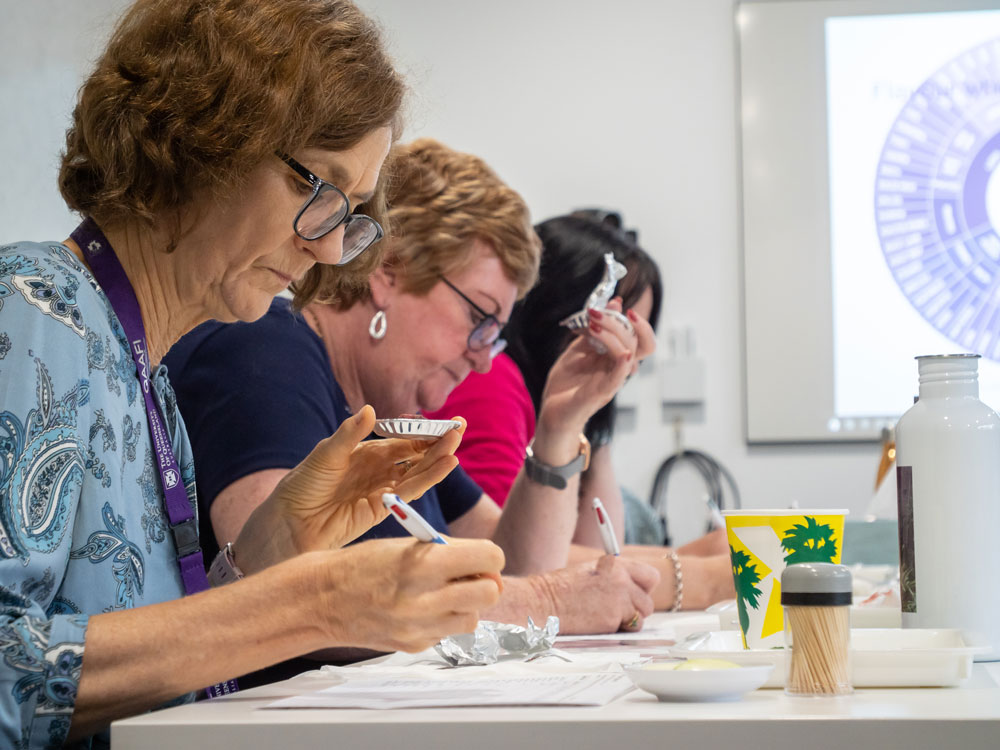A world first trial into the use of the red seaweed Asparagopsis in Wagyu has delivered promising results and further demonstrated the potential of feed additives to help cattle producers reduce enteric methane emissions.
The feedlot trial, conducted over 300 days, resulted in 28 per cent enteric methane abatement, with no impact on safety, taste and product integrity, or marble score.

Australian Agricultural Company (AACo) Managing Director and CEO, David Harris, said the trial broke new ground as the longest of its kind and demonstrated AACo’s commitment to sustainability.
“This trial was an important step forward and we’re encouraged by the results,” Mr Harris said.
“Based on previous trials that were primarily with cattle fed for 100 days, we anticipated a higher methane abatement, however reducing emissions by almost 30 per cent is still significant.
“Considering the nature of the trial we will look at the positives and take away the learning opportunities.
"It helped us understand more about how to apply Asparagopsis and what we can consider to improve outcomes in the future.
“There is no silver bullet to eliminating enteric methane emissions, but we’ll keep trying and we’ll discover how to make it work in our environment. The important thing is that we are determined to get there.”
Mr Harris said there were other important outcomes such as the taste and marbling results and the sustained use of Asparagopsis oil without the rumen adapting that made the trial a success.
“No one had tested those things in Wagyu previously, but they are important findings especially as a beef company selling a premium product into global markets,” he said.
“Importantly, we also learned that it’s safe for long-fed cattle like Wagyu to consume over those extended periods.”

In addition to the lower methane abatement the trial raised several questions including a reduction in liveweight gain of 9.38% as well as the type and size of ration required to get outcomes in Wagyu cattle.
“This trial demonstrates there’s still a lot we don’t know, but that’s not a bad thing. Without testing the science, we won’t know how to solve the methane challenge,” Mr Harris said.
“There is significant potential with methane abatement technology. While it’s not perfect yet, with more funding for research and better collaboration with government we can get there.
“We want to be part of the climate change solution.
"The question is, how do we make this work for everybody? This trial was another important piece in that puzzle.”
Mr Harris said AACo will now advance other trial work in methane abatement, including potential opportunities with Asparagopsis.
“We will need diversity in solutions to tackle this issue across our supply chain and we still view Asparagopsis as a part of that mix,” he said.
“Feedlots are a small component of our emissions profile.
"The greater challenge will be tackling methane in extensive grazing environments such as our stations, which can be more than a million hectares in size.
“So, we will look at multiple pathways and a range of interventions. Feed additives generally are only one part of the solution. There will be other approaches and technologies that emerge to complement them.
“We look forward to making further announcements about this work in the near future.”
The trial was conducted in collaboration with Meat & Livestock Australia (MLA), Sea Forest, University of New England (UNE) and Associate Professor Heather Smyth at The University of Queensland (UQ).
This story was first published by AACo.
Media: Aaron Wakeley, awakeley@aaco.com.au, 0438 144 127; A/Prof Heather Smyth, h.smyth@uq.edu.au, +61 468 732 394; QAAFI Comms, Natalie MacGregor, n.macgregor@uq.edu.au, +61 409 135 651.
The Queensland Alliance for Agriculture and Food Innovation is a research institute at The University of Queensland supported by the Queensland Government via the Queensland Department of Agriculture and Fisheries.



